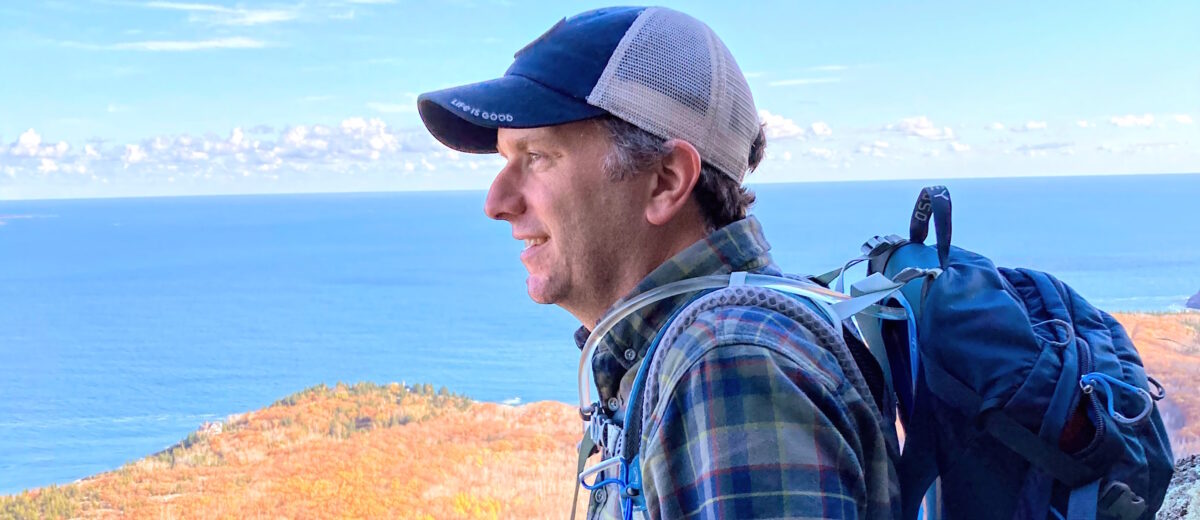WINTER HARBOR, MAINE – Schoodic Institute at Acadia National Park is pleased to announce the appointment of Dr. Chris Nadeau as Climate Change Adaptation Scientist. Nadeau will build on Schoodic Institute’s work evaluating how management agencies like the National Park Service can adapt their management practices to the changing climate. Nadeau will oversee experimental habitat restoration in the Great Meadow, Bass Harbor Marsh, and mountain summits. Following guidance from the newly developed resist-accept-direct (RAD) framework, Nadeau will take advantage of active restoration projects to evaluate the effectiveness of a suite of different climate change adaptation strategies to ensure the actions taken today (e.g., invasive plant removal and native plant restoration) continue to provide benefits for people and biodiversity.
Nadeau has a long history of working with Schoodic Institute and Acadia National Park to address management challenges posed by climate change. As a Second Century Stewardship fellow, Nadeau used freshwater rock pools on Schoodic Point to demonstrate the enormous conservation value of small, cold locations on the landscape for conserving biodiversity. Then as a David H. Smith Conservation Research Fellow, Nadeau developed the Sustainable Summits Project, which seeks to understand whether increasing genetic diversity of restored plant populations can ensure the long-term success of habitat restorations on mountain summits such as Cadillac Mountain.
“Chris brings a great suite of adaptation science skills and the ability to work with a wide range of partners,” said Schoodic Institute President and CEO Nicholas Fisichelli. “Furthermore, his science communication expertise will help advance our efforts to raise understanding and support for conservation in a rapidly changing world.”
Nadeau will help Schoodic Institute continue to be a leader in the science of climate change adaptation, including a commitment to communicating science to diverse audiences. His skills in experimental design, statistics, and modeling the impacts of climate change on species will expand and complement Schoodic Institute’s science team.
